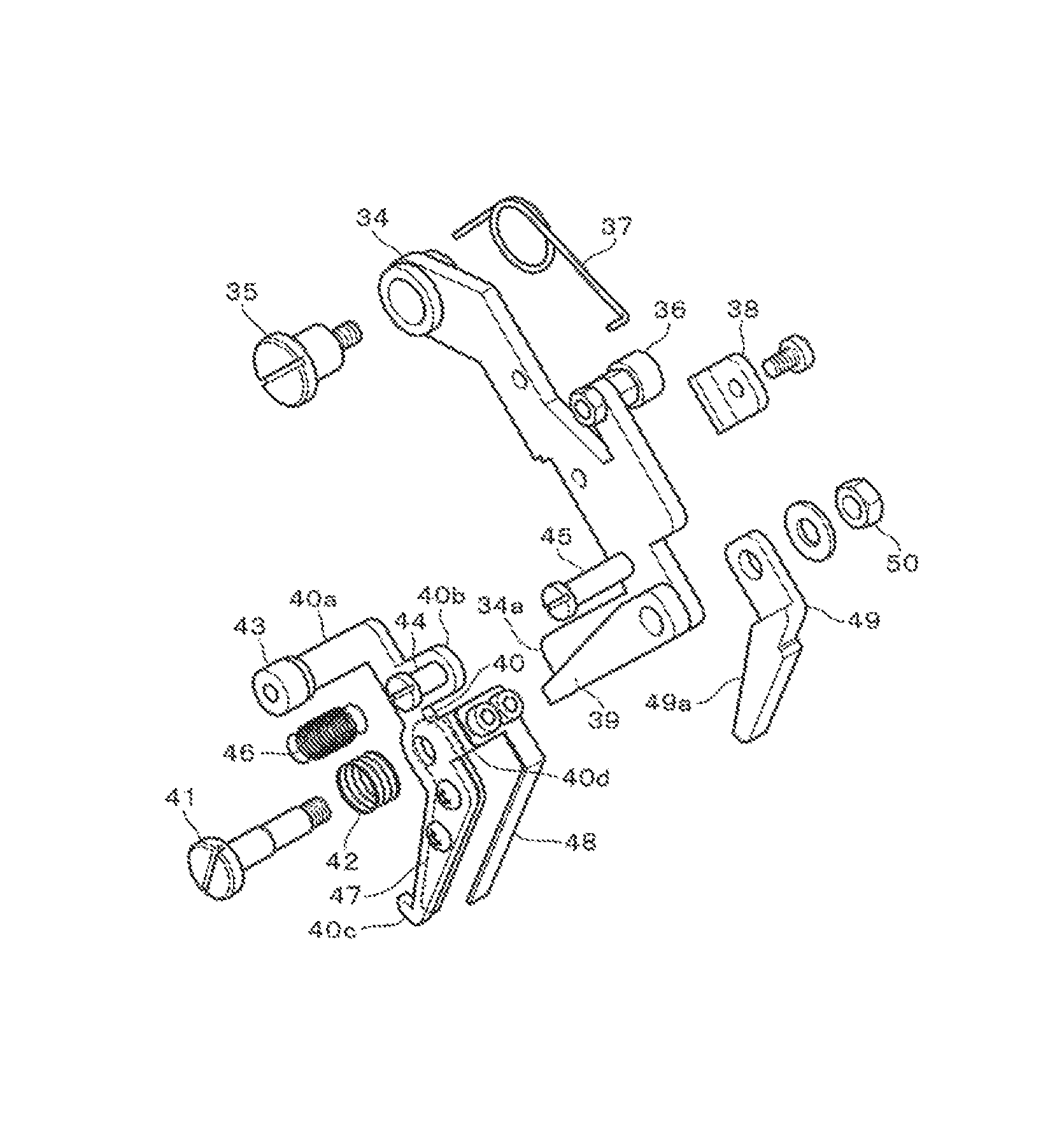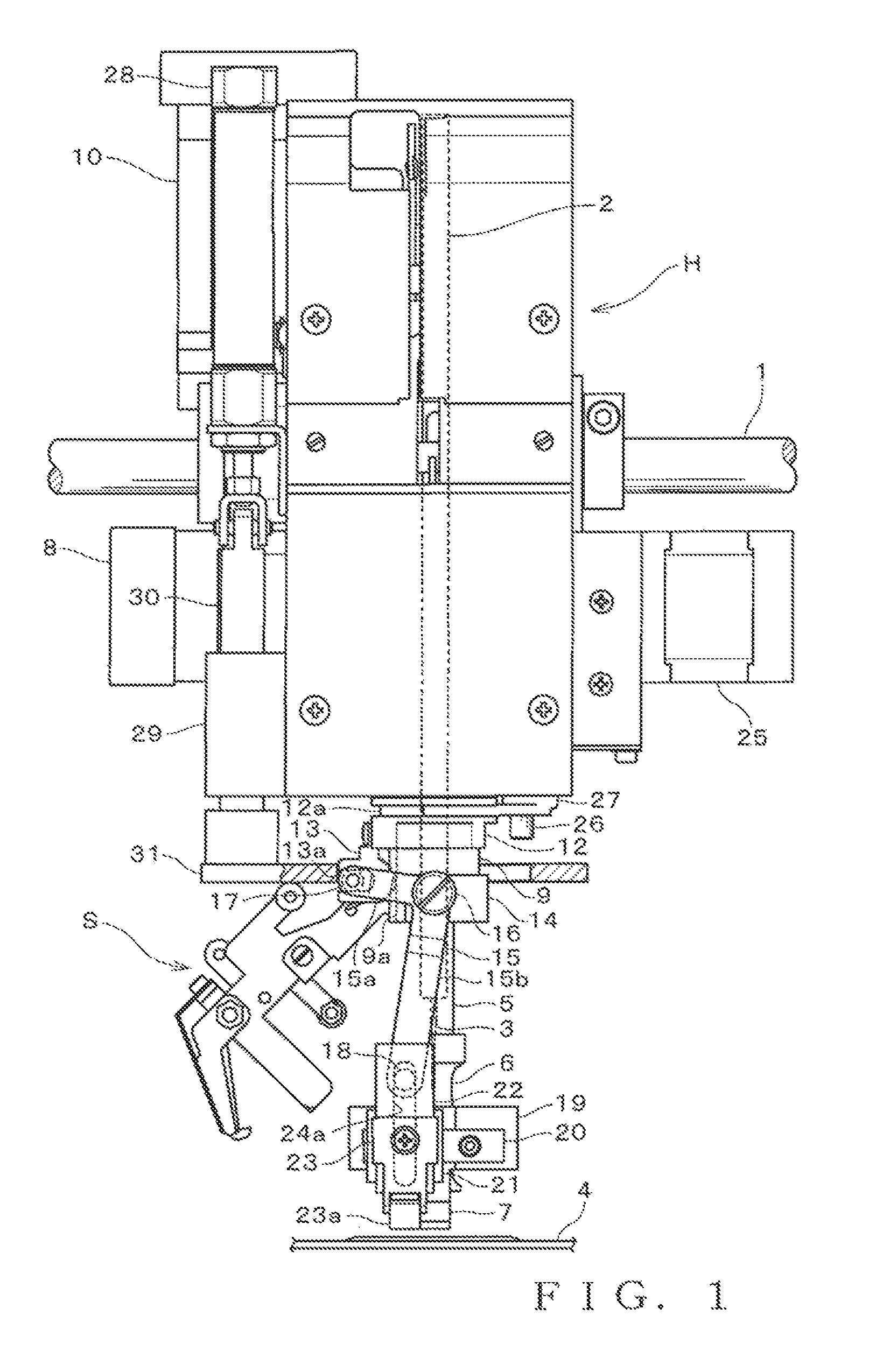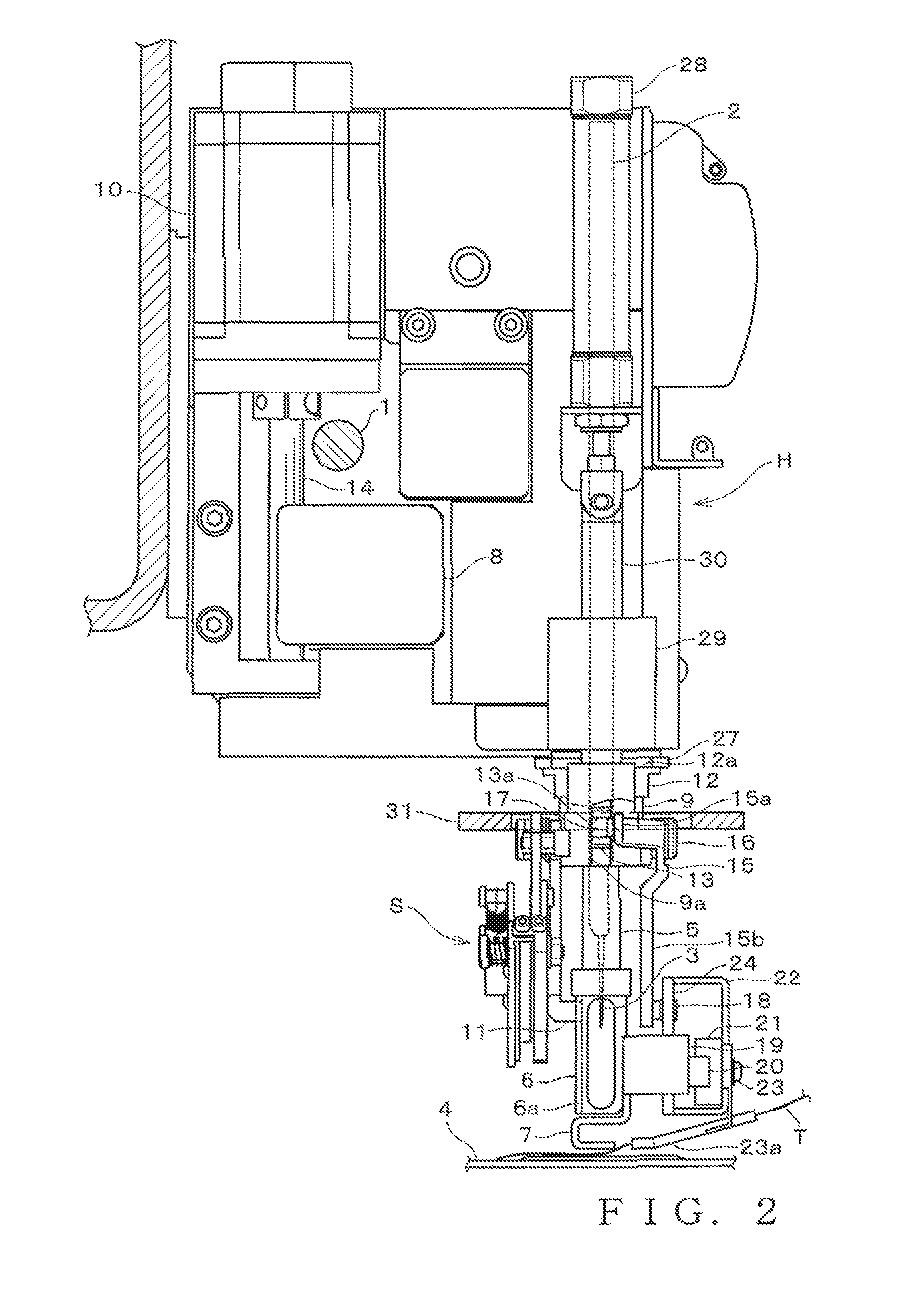Sewing machine
a sewing machine and guide technology, applied in the field of sewing machines, can solve the problem that the operation of pulling out the sewing material from the guide prior to the sewing start is unnecessary
- Summary
- Abstract
- Description
- Claims
- Application Information
AI Technical Summary
Benefits of technology
Problems solved by technology
Method used
Image
Examples
first embodiment
[0031]FIG. 1 is explanatory of a general construction of a sewing machine to which are applied basic principles of the present invention; more specifically, FIG. 1 is a front view of a machine head H of the sewing machine. Whereas the embodiment can be constructed as a multi-head sewing machine having a plurality of machine heads H, only one machine head H is shown to facilitate understanding of the illustration and following description. FIG. 2 is a left side view of the machine head H shown in FIG. 1. The machine head H operates to sew an elongated sewing material (such as a tape or cord), wound on a not-shown bobbin, onto a sewing workpiece (such as a fabric). Main machine shaft 1 extends through the machine head H. A needle bar 2 is reciprocatively driven vertically or in an up-down direction, together with a sewing needle 3 fixed to the lower end thereof, by means of a not-shown needle bar drive mechanism. Lock stitching is performed in the well-known manner through the up-and-...
second embodiment
[0079]The slip plate 31 is lowered in the state of FIGS. 10 and 11 and the base member 34′ is caused to pivot about the second lever pin 35 in the clockwise direction of FIG. 10 so that it moves from the evacuation position of FIG. 10 toward the cutting position of FIG. 13. While the base member 34′ is in the evacuation position, as shown in FIG. 10, the knife base 40′ is held in the pivoting position of FIG. 10 by the biasing force of the second coil spring 46, and the driver lever 51 having the roller 43 of the knife base 40′ fitted in the U-shaped fitting portion 51c is also held in the pivoting position of FIG. 10. Once the base member 34′ pivots from the position of FIG. 10 to a pivoting position of FIG. 12, the roller 53 provided on the drive lever 51 abuts against the lower surface of the slip plate 31. As the base member 34′ pivots to the pivoting position of FIG. 12, the distal end portion of the thread hook member 54 passes the neighborhood of the needle drop position and ...
PUM
 Login to View More
Login to View More Abstract
Description
Claims
Application Information
 Login to View More
Login to View More - R&D
- Intellectual Property
- Life Sciences
- Materials
- Tech Scout
- Unparalleled Data Quality
- Higher Quality Content
- 60% Fewer Hallucinations
Browse by: Latest US Patents, China's latest patents, Technical Efficacy Thesaurus, Application Domain, Technology Topic, Popular Technical Reports.
© 2025 PatSnap. All rights reserved.Legal|Privacy policy|Modern Slavery Act Transparency Statement|Sitemap|About US| Contact US: help@patsnap.com



